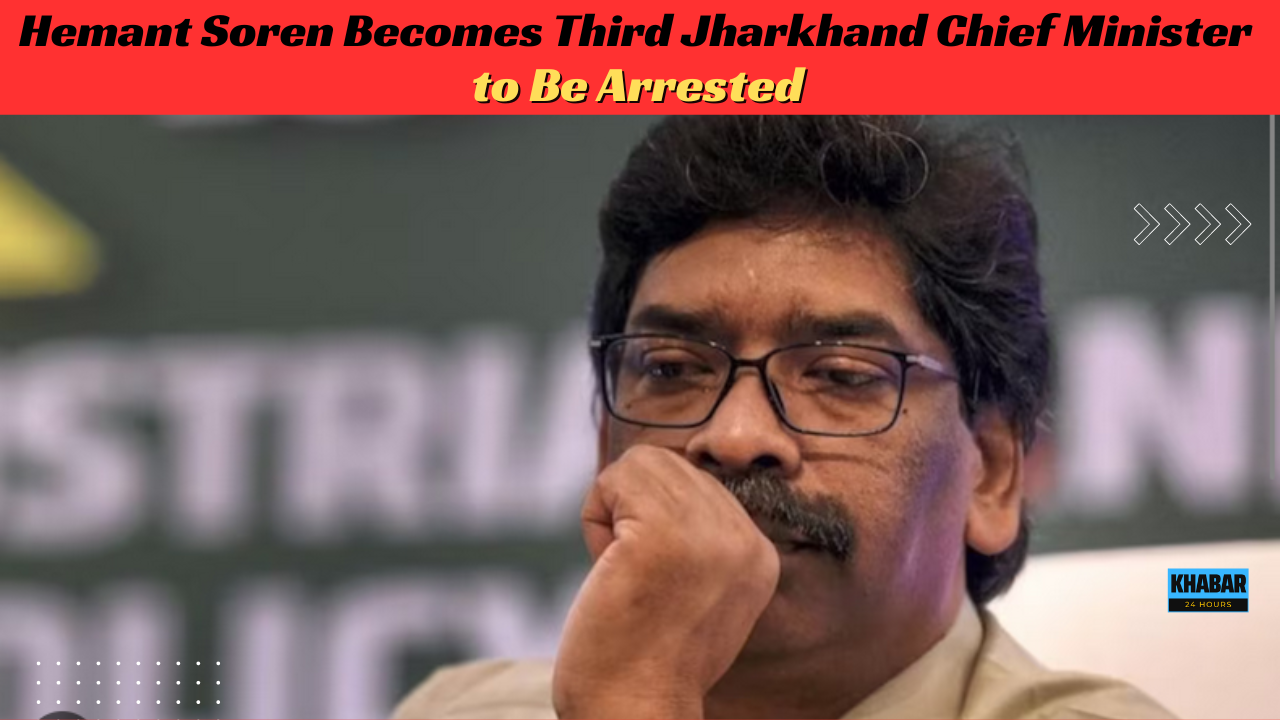Arrest of Hemant Soren: Following in the footsteps of his father, Shibu Soren, and Madhu Koda, Hemant Soren has become the third Chief Minister of Jharkhand to face arrest.


In a startling turn of events, Hemant Soren, the Chief Minister of Jharkhand, has been arrested, marking him as the third incumbent Chief Minister in the state’s history to face such legal repercussions. This development has sent shockwaves throughout the political landscape of Jharkhand, raising questions about governance, accountability, and the future trajectory of the state.
Soren’s arrest comes amidst allegations of corruption and misconduct, adding another layer of complexity to Jharkhand’s political dynamics. As the head of the state government, his detention has ignited debates regarding the efficacy of existing anti-corruption measures and the prevalence of malfeasance within the corridors of power.
The implications of Soren’s arrest extend beyond individual culpability, casting a shadow over the credibility of the political establishment in Jharkhand. With public trust at stake, there is a pressing need for transparency, accountability, and ethical governance to restore faith in democratic institutions.
The timing of Soren’s arrest also holds significant ramifications, occurring against the backdrop of upcoming elections and simmering socio-economic challenges. As Jharkhand grapples with issues such as poverty, unemployment, and environmental degradation, the absence of stable leadership could exacerbate existing crises and hinder efforts towards meaningful progress.

Moreover, Soren’s arrest underscores the imperative for systemic reforms aimed at combating corruption and enhancing the integrity of public office. It serves as a stark reminder of the perils associated with unchecked power and the imperative for robust mechanisms to uphold the rule of law.
In the aftermath of this development, political observers are closely monitoring the unfolding events and speculating on potential ramifications for the ruling party, opposition factions, and the electorate at large. The outcome of this episode is likely to shape the political discourse in Jharkhand for the foreseeable future, influencing electoral dynamics, policy priorities, and public perceptions.
As investigations into Soren’s alleged misconduct proceed, the spotlight remains firmly fixed on the state’s leadership and its ability to navigate through this turbulent period. The onus lies not only on law enforcement agencies to ensure a fair and impartial inquiry but also on the broader political establishment to uphold the principles of justice and accountability.
In conclusion, Hemant Soren’s arrest marks a significant chapter in Jharkhand’s political history, raising pertinent questions about governance, ethics, and the rule of law. While the repercussions of this event are yet to fully unfold, one thing remains clear – the need for steadfast commitment towards fostering a culture of transparency, integrity, and public trust in the corridors of power. Only through concerted efforts towards institutional reform and ethical leadership can Jharkhand aspire to realize its full potential and fulfill the aspirations of its citizens.
On Wednesday, Hemant Soren, who took office on December 29, 2019, faced over six hours of questioning by the ED, having previously avoided nine summonses.

Explore: https://khabar24hrs.com/wp-admin/post.php?post=2172&action

